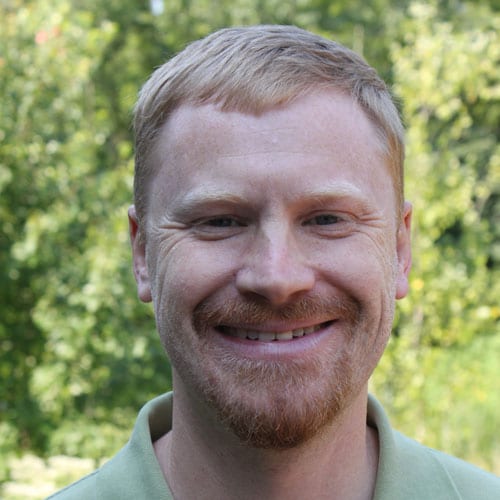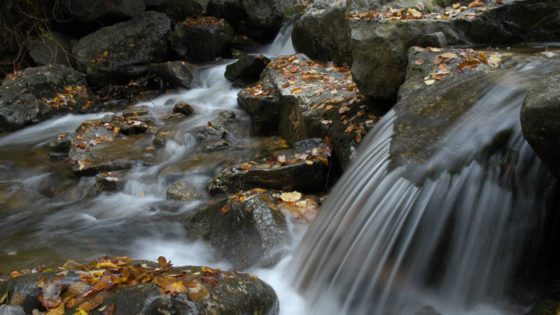
Director of Education
Education Department
Contact
skerlin@stroudcenter.org
tel. 610-910-0053
970 Spencer Road, Avondale, PA 19311
Interest and Expertise
Steve Kerlin’s research interests are in environmental and science education, technology to enhance and extend outdoor education, educator professional development, and inquiry-based teaching and learning. He is an Eagle Scout and worked at Custaloga Town Scout Reservation for 10 summers. When not at work, Kerlin enjoys kayaking, rock climbing, backpacking, hiking, and other outdoor adventures with his family.
Education
- Ph.D., curriculum and instruction, The Pennsylvania State University, University Park, Pennsylvania.
- M.S., curriculum and instruction, The Pennsylvania State University, University Park, Pennsylvania.
- B.S., secondary education, The Pennsylvania State University, University Park, Pennsylvania.
Professional Experience
- Director of education, Stroud Water Research Center, 2016–present.
- Assistant professor of environmental education/interpretation and youth programming/camp management, University of Wisconsin-Stevens Point, 2013–2015.
- Statewide specialist in nature center management and Wisconsin Center for Environmental Education Outreach Specialist, University of Wisconsin Extension, 2013–2015.
- Assistant professor of science and environmental education and director of the Center for Environmental Education, Northern Kentucky University, 2009–2013.
- Science teacher, grades 7–9, Penns Valley Area School District, Pennsylvania, 1998–2005.
Publications
A case study of the effects of a school outdoor learning initiative — Spring 2021
See publications by all Stroud Center authors
Related News
Teachers Dive into Conestoga River Ecology and History
PA to Meet Rise of STEM Economy With New Education Standards Featuring Environmental Literacy
Watershed on Wheels Makes a Splash at World Water Day Event

